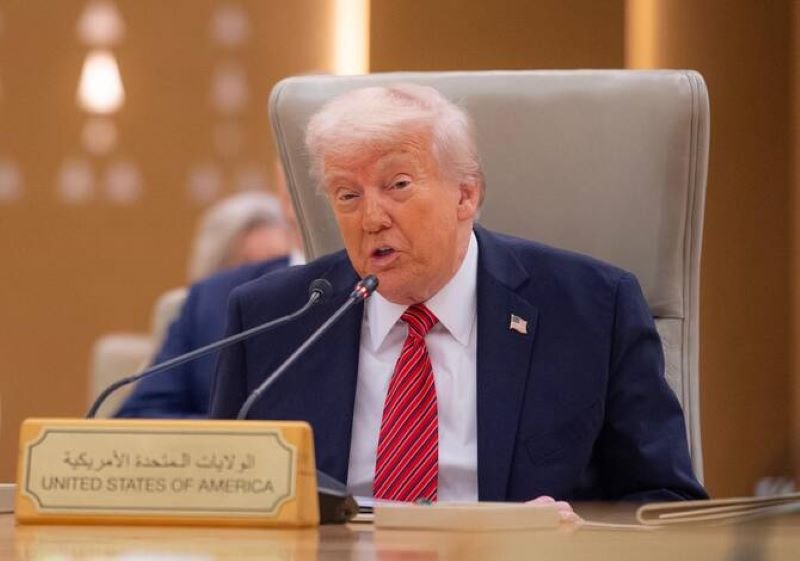Washington (TDI): US President Donald Trump commended Pakistan’s leadership during a meeting with German Chancellor Friedrich Merz at the White House on Thursday.
The meeting, Chancellor Merz’s first official visit to Washington since assuming office on May 6, touched on several pressing global concerns. Among them, the growing tension between South Asia’s two nuclear-armed nations took center stage.
President Trump didn’t mince words in recognizing Islamabad’s response. “Pakistan has shown very strong leadership,” he said. “Some folks might not like hearing that from me, but I call it like I see it.”
Trump said that he had been personally involved in high-level diplomacy to defuse the conflict, speaking directly with senior officials from both countries. “I told them, if nuclear weapons or war are on the table, then so is the end of trade talks with the US,” he recalled.
The tensions between India and Pakistan escalated sharply after a deadly incident in Indian-occupied Kashmir on April 22, where 26 people lost their lives. Without presenting evidence, India blamed Pakistan, which in turn denied the accusations and demanded an independent investigation.
India responded by suspending the Indus Waters Treaty, halting trade with Pakistan, and closing several border crossings. Islamabad reacted with reciprocal steps, including shutting its airspace to Indian aircrafts.
Read More: Pakistani Delegation Visiting US Next Week for Trade Talks: Trump
The situation reached a critical point on May 7, when India carried out airstrikes in multiple Pakistani cities, including areas in Azad Jammu and Kashmir. Civilian casualties were reported, and infrastructure was damage. Pakistan retaliated by downing Indian fighter jets, including Rafale aircraft, and shooting down several drones of Israeli origin.
The hostilities peaked on May 10 when Indian forces targeted Pakistani airbases. In a swift response, Pakistan launched “Operation Bunyanum Marsoos,” striking back at Indian military sites. With both sides ramping up their offensives, the risk of a full-scale war became imminent.
According to Trump, that’s when he stepped in with direct pressure on both sides to de-escalate. “We made it clear: this is not the time for reckless decisions,” he said.
By the evening of May 10, both nations agreed to a ceasefire. While Pakistan credited Washington, Beijing, and Gulf states for helping defuse the situation, India maintained that the breakthrough came from bilateral negotiations.
Read More: Trump Calls Pakistanis ‘Brilliant’, Pushes Trade for Peace
Still, Trump expressed confidence in his role. “We stopped that war. Unless they start it again, and I don’t think they will. We’ve done something good,” he said.
The US president praised both governments for pulling back, but singled out Pakistan’s leadership for making the “right choice at the right time.”
He also acknowledged Indian leadership, saying, “Their Prime Minister Narendra Modi visited recently, we had good talks, and we’re working on a new trade deal.”
Farkhund Yousafzai is an Associate Editor at The Diplomatic Insight.



